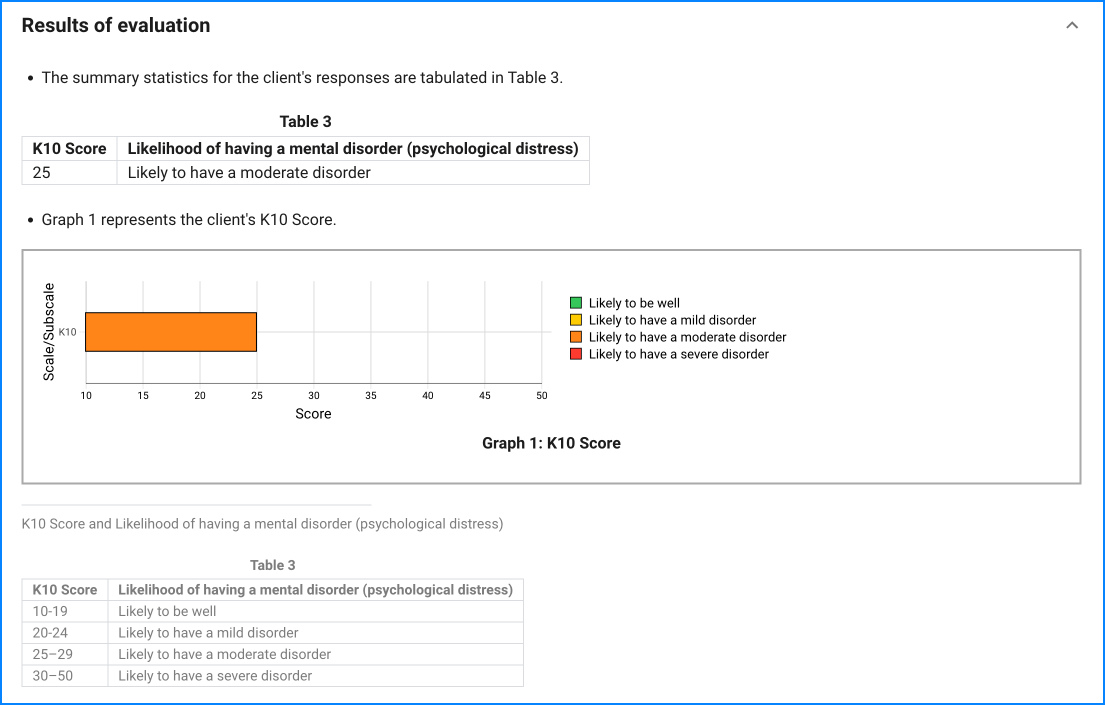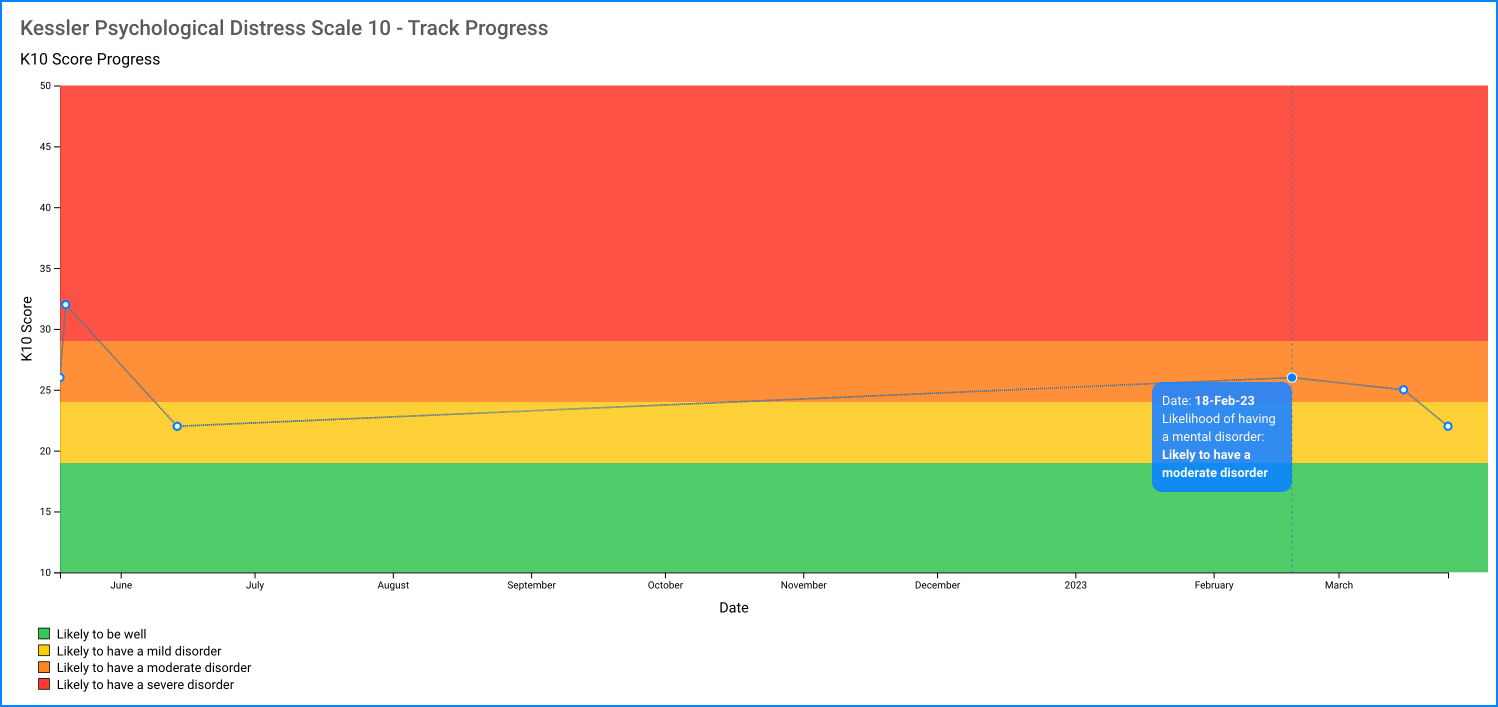Since the questionnaire relies on client self-report, all responses should be verified by the clinician, and a definitive diagnosis is made on clinical grounds taking into account how well the client understood the questionnaire, as well as other relevant information from the client.
This is a screening instrument and practitioners should make a clinical judgement as to whether a person needs treatment.
Scores usually decline with effective treatment. Patients whose scores remain above 24 after treatment should be reviewed and specialist referral considered.
The K10 cannot be used to determine major mental illnesses (such as psychoses) but has been validated as a simple measure of anxiety, depression and worry (psychological distress).
For other questions that are routinely administered along with the scales to learn about persistence and impairment, please refer to Kessler Psychological Distress Scale 10+ (K10+).
For interviewer administration and interview training notes, please refer to Interviewer Administered K10+.




